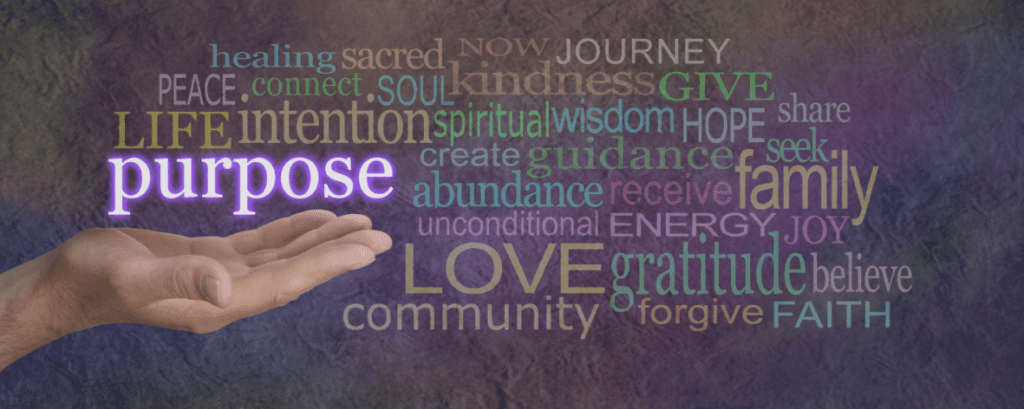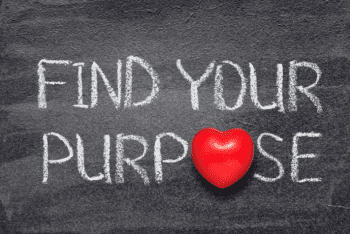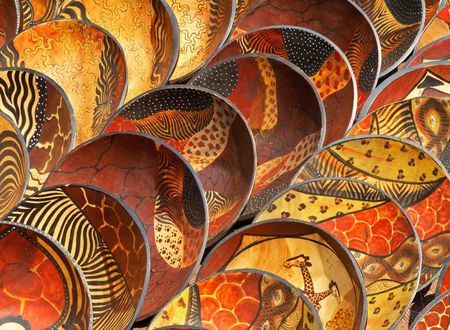As a philosopher, you might ponder over the meaning of life, but if you want to be happy, it’s the meaning in life that matters.
Call it a mid-life crisis or a higher calling, at some point in time, every educated mind is faced with the most important existential question of their life: Why am I here? What is my purpose in life?
I get it all the time from some of the most intelligent people. They ask me, how do I know my purpose in life, how do I find it?
The conversation then steers in the natural direction, that is, I have tried meditation but it’s not all that, or I can’t seem to feel any devotion when I pray. What should I do?
Those who experience emptiness and a void in their life are plagued, if not constantly hounded, by the inner turmoil of finding their purpose in life. The purpose of your life is not to merge into the supreme consciousness; that’s an outcome. It will happen anyway, for everything goes back to its source, eventually.
No matter which colored bin we put ourselves into, we are fully recyclable. Before death picks up the bin of your life and empties it in the truck of samsara, the good news is, it is possible to find your life’s purpose. How, exactly? you ask.
First up, a little incident 1 from the life of the prolific Russian writer and philosopher, Fyodor Dostoevsky.
In 1849, a young Fyodor Dostoyevsky 2 experienced his valley 3 and the beginning of his recovery in a single moment.
He had been imprisoned in Saint Petersburg with a group of other revolutionaries and sentenced to die. The men were marched out into a square in their burial shrouds. The firing squad gathered, and the drums sounded. Death was seconds away.
Then, at that instant, by prearranged plan, a messenger arrived on horseback. The execution was to be stayed by the clemency of the czar. The original sentences would apply—hard labor. One man broke down crying, singing out “Long live the czar!” Another went mad. Dostoyevsky was brought back to his cell and suddenly was overcome with joy.
“I cannot recall when I was ever as happy as on that day,” he later recalled. “I walked up and down my cell … and sang the whole time, sang at the top of my voice, so happy at being given back my life!”
He immediately wrote a letter to his brother: “And only then did I know how much I loved you my dear brother!” All the small questions that used to concern him fell away. “When I look back on my past and think how much time I wasted on nothing, how much time has been lost in futilities, errors, laziness, incapacity to live; how little I appreciated it, how many times I sinned against my heart and soul — then my life heart bleeds.”
The discovery of your purpose in life or the truth of your life is akin to finding your voice, being alive one more time, it’s like being born again. The czar of meaninglessness has spared you, it feels. Nothing is more frustrating and boring than being directionless. That’s where purpose in life comes in; it gives you direction.
Everything else is dwarfed in front of your purpose then. The problems, the challenges and issues remain, they may even be bigger than ever before, but they are like weeds in lush grassland. These weeds affect the aesthetic and wellbeing of your garden, but you can uproot them. In fact, you have to. Again and again. It’s a small price to pay, for when you are driven, even your problems take on your color — like weeds in the grass.
I’ve said a few times that to experience fulfillment our energy must be invested in some creative pursuit, that you move a step closer to your life’s purpose when you undertake something bigger than yourself. I have also spoken on multiple occasions saying that if you consciously choose to work below your potential, you will feel frustrated and unfulfilled. The question remains: how to find your life’s purpose? The answer is rather simple, here:
Care about something.
“A person’s life can be meaningful only if she cares fairly deeply about some things, only if she is gripped, excited, interested, engaged.”
This quote is from Susan Wolf’s Meaning in Life and Why it Matters. I feel in this one sentence she has awarded us the most promising way of finding your life’s purpose. When I first read it, I marveled over the beauty of this insight for days on end.
Whatever we care deeply about becomes our life’s purpose, its meaning. It’s really that simple. This explains why passionate people are often full of life. Or why parents can be so fulfilled in their families. Whether you care deeply about a person, a cause or a thing is mostly immaterial, as long as you care about something.
The only thing to bear in mind is that if you spend your life deeply caring about, let’s say your family, children or some person, the day they move on, you’ll feel incredibly empty. So, it helps to either care about something which goes beyond a person or accept the fact that if you care about an individual, one day he or she will be separated and it will cause you pain.
If you are someone who has no passion for anything in life, I’m sorry to tell you that nobody can help you find your purpose. And one good way to find your passion is to see what excited you when you were a child.
Often when people take up their childhood hobbies as grownup adults, it builds anew a sense of wonder you see in children. Even if it doesn’t bring a breath of fresh air, at least, it shakes up the jar of your life. Those emotions, desires, and dreams that were laying at the bottom until a few moments ago, rise to the surface.
Once you know what you care about, the immediate next step is to act on it and start connecting with the right people.
Go find a mentor or a co-traveler. It will go a long way. You will need motivation when you run low or think of giving up. You will need someone who is willing to listen to you, handhold you, that person or group who will understand your pain and challenges because they are either in the same boat or have been through the same journey.
You may be tempted to think that you can do it on your own or that you don’t need others, but you will be kidding yourself.
Psychology’s second crucial insight for understanding meaning in life, says Haidt, is hive psychology. Human beings are “ultra-social,” not individualistic, and in this we more closely resemble “bees, ants, termites and naked mole rats” than our ancestors the chimpanzees.
Meaningfulness would be more easily achieved, Haidt suggests, if we placed the group rather than the individual at the center of our thinking about fulfilled lives, and recognized the importance of participation in collective rituals and projects. 4
Once you are in it, enjoy it, make the most of it. You can’t predict what it’ll turn into or which direction it will take. That’s part of the beauty. You can have it all thought out and figured but one random incident, jumping at you out of nowhere, is enough to change the course of your pursuit, your life, and ultimately your purpose in life.
A young man, brought up by his grandmother, moved across country as he was appointed as a gardener in the White House. Every month, he’d call his granny who was still living in California. Two years into his job, he phoned her rather excitedly one day.
“Ma!” he said, “I’ve got big news to share! You won’t believe what happened today!”
“I too have big news to share,” the old lady said in a feeble, but no less enthusiastic voice from the other end. “First, let me tell you mine.”
“No, Grandma. You have to hear me first. I’d been dreaming of this day ever since I got here.”
“Oh, sonny, how incredible that I’d been dreaming about this for years. My news is the biggest thing that could happen to me. Hear me out.”
“Today, the president of the United States of America shook my hands,” the young boy said without waiting for his grandmother, “he called me by name and told me he was happy with my work. I’m over the moon!”
“Well, today, son,” the lady said, “I cleaned my attic. All by myself! I can’t tell you how happy I am. I could die in peace this very moment.”
What you find meaningful may appear completely pointless to others, and that’s okay. In fact, the criterion of what you care about has little to do with what others think about it. Your purpose in life doesn’t need to be grand or groundbreaking, it just needs to be something you care about deeply. The rest builds up on its own. If truth be told, in chasing grandness, we often lose the purpose itself.
Besides, when making the big choices in life, as L. A. Paul puts it, “You shouldn’t fool yourself — you have no idea what you are getting into.” 5
In a nutshell, to find your purpose in life:
- Care about something.
- If you don’t know what you care about then find out.
- One method is to try whatever you can. You just never know what may catch your fancy.
- Find a mentor and hang out with the right people.
- The more deeply you care about something, the greater love you’ll discover for your purpose.
To create is our natural dharma. Don’t we always root for the protagonist to win, don’t we pray for a neat closure, for some happy ending? Why? We are born to walk the path of greatness. We celebrate triumph, we honor strength, we love those who go against all the odds. We are inspired by those who aim for the height of greatness, who have a beautiful purpose in life.
Now, if you say, “I don’t give a damn,” 6 reconsider your position.
Give a damn about something.
Peace.
Swami
P.S. I will be announcing a new feature on this blog on the blessed Christmas day. Stay tuned!
Editorial Note
Course
Art of Meditation
Free yourself from suffering and live life to the fullest. Learn the yogic technique of meditation in 4 days (and master it over a lifetime)
So, now you know the secret to finding your purpose it to care about something. Give a damn about something and the purpose will follow naturally. There might still be some doubts you have though — how does it work? How to find your purpose and passion in life in a way that’s sustainable, or how finding your purpose may change your life entirely? We’ve got you covered!
What if finding my purpose in life alienates me from my family who think I should take the traditional route?
We arrive in this world with birthright gifts, talents—then we spend the first half of our lives abandoning them or letting others disabuse us of them.
As young people, we are surrounded by expectations that may have little to do with who we really are, expectations held by people who are not trying to discern our selfhood but to fit us into slots.

Nature takes work from us according to our mindset, potential, and our stream of consciousness. We may as well then align ourselves for boundless creativity and joy. You may as well find your purpose and do it on purpose, others’ opinions be damned. Read more here on how you can realize your potential and discover your own truth.
If I want to start finding my purpose in life, what is the first step?

If you are serious about purpose, start small, like very small, with one person because finding your purpose is not a grand affair. Do something more than you’ve done before, maybe different to whatever you might have done in the past. Don’t wait for your purpose to approach you. You have to earn your purpose. Work for it, be ready for it. Every word we utter, action we do, thought we pursue, it all adds up.
Add up your good deeds. Continue reading here for a beautiful real-life story of the man who breathed and lived divinity through his actions.
Is finding my purpose the key to lasting happiness?

Loneliness, non-clinical depression, bouts of anxiety, persistent sadness, a nagging emptiness, they all stem from the same thing: a purposeless life. Unless you have a purpose in life, it’ll be extremely hard to put your energies into anything creative.
Lasting fulfillment comes from the quality of our vision, understanding and execution, it comes from our temperament and our values. And happiness, in my view, is a sense of fulfillment which comes from three things. Read more here on what they are. Finding your purpose is certainly one.
Notes
A GOOD STORY
There were four members in a household. Everybody, Somebody, Anybody and Nobody. A bill was overdue. Everybody thought Somebody would do it. Anybody could have done it but Nobody did it.
Don't leave empty-handed, consider contributing.It's a good thing to do today.








Comments & Discussion
121 COMMENTS
Please login to read members' comments and participate in the discussion.